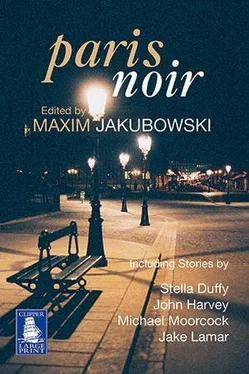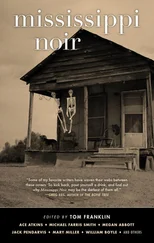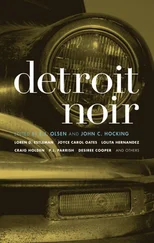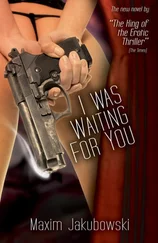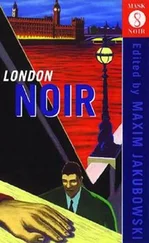Maxim Jakubowski - Paris Noir
Здесь есть возможность читать онлайн «Maxim Jakubowski - Paris Noir» весь текст электронной книги совершенно бесплатно (целиком полную версию без сокращений). В некоторых случаях можно слушать аудио, скачать через торрент в формате fb2 и присутствует краткое содержание. Жанр: Детектив, на английском языке. Описание произведения, (предисловие) а так же отзывы посетителей доступны на портале библиотеки ЛибКат.
- Название:Paris Noir
- Автор:
- Жанр:
- Год:неизвестен
- ISBN:нет данных
- Рейтинг книги:3 / 5. Голосов: 1
-
Избранное:Добавить в избранное
- Отзывы:
-
Ваша оценка:
- 60
- 1
- 2
- 3
- 4
- 5
Paris Noir: краткое содержание, описание и аннотация
Предлагаем к чтению аннотацию, описание, краткое содержание или предисловие (зависит от того, что написал сам автор книги «Paris Noir»). Если вы не нашли необходимую информацию о книге — напишите в комментариях, мы постараемся отыскать её.
Edited by Maxim Jakubowski, the stories range from quietly menacing to spectacularly violent, and include contributions from some of the most famous crime writers from both sides of the Atlantic, as well as the other side of the Channel.
Paris Noir — читать онлайн бесплатно полную книгу (весь текст) целиком
Ниже представлен текст книги, разбитый по страницам. Система сохранения места последней прочитанной страницы, позволяет с удобством читать онлайн бесплатно книгу «Paris Noir», без необходимости каждый раз заново искать на чём Вы остановились. Поставьте закладку, и сможете в любой момент перейти на страницу, на которой закончили чтение.
Интервал:
Закладка:
What were they talking about, when she had a man’s body in her attic studio in the fourteenth arrondissement? A man she’d just killed, thinking she was acting in self-defence…
Was that Guy Georges’ fault, or Julie Coray’s?
It was all unbelievably unfair.
She had to think hard before calling the police.
Tomorrow, it was Julie Coray who’d be front page news. Unless…
Maybe Claire had the answer.
Dear Claire.
Breton women are strong. They help each other out. If Claire was coming from Cochin, she could borrow a dissection saw from there… Julie eyed the roll of 30-litre bin liners in the open kitchen cabinet, under the sink.
‘Claire…’
‘Yes…’
‘I’ve got a big favour to ask you… If you could come now…’
A sigh.
‘Oh, you poor thing… I called you because I turned my phone on again and got your message. I couldn’t sleep, they’ve stuffed me with painkillers… I’m in Cochin, with a long-leg cylinder cast…’
‘A what?’
‘A long-leg cylinder cast. The kind that goes all the way up your leg from the foot to the top of the thigh. I got hit by a taxi crossing the road outside the hospital, just after we spoke, at midday today… D’you realise, I’m in hospital in my own department. It’s a pain… In plaster for two months! I’m sorry, but I think you’ll have to cope on your own like a big girl…’
Letting the phone fall to her side, Julie Coray straightened up, dazed, and stared at the corpse for a long time. The broken skull, the dented frying pan, the overturned cup and saucer, the coffee pot she’d thrown, smashed to smithereens, the puddle of red, glistening blood with black swirls, reflecting the light bulb on the ceiling. Then her eyes turned back to the TV where the TFI newscaster opened his arms before passing to the next topic. Julie turned up the sound.
… that’s all we can say for the moment on what’s been today’s main news story. Guy Georges will never commit another crime. The spectre no longer haunts Paris, women are safe again and can look forward to the future with a smile!
Putting the mobile back to her ear, Julie wished her friend goodnight and a speedy recovery, promised to visit her in hospital very soon, ended the call, left the TV on for background noise – and pulled from the cupboard a plastic sheet, a broom, a bucket and a floor cloth.
On rue Cels, like everywhere else in the capital, the bin men came every day. Tomorrow morning, Julie would phone Reader’s Digest to tell them she had a cold.
Then she’d go to a DIY store to buy a metal saw.
Translation © Lulu Norman and Ros Schwartz
UN BON REPAS DO IT COMMENCER PAR LA FAIM… by STELLA DUFFY
The journey from London to Paris is easy.
Too easy. I need more time, to think, prepare, get ready. Security, supposed to be so important now, these days, ways, places, is lax to the point of ease. I love it, welcome the apparent ease. I believe in fate, in those big red buses lined up to knock us over, in your number being up, the calling in of one’s very own pleasure boat. I do not believe that taking off our shoes at airports will save us. I show my ticket and my passport, walk through to the train, and get off at the Gare du Nord. Too easy. Too fast.
Less than three hours after leaving London I walk straight into a picket line. It seems the French staff are less fond of the lax security than I. Or perhaps they just don’t like the non-essential immigrants they say Eurostar is employing. I accept the badly copied leaflet thrust into my hand and put it in my pocket. Bienvenue en France.
I can’t face the Métro. Not yet, this early, it is not yet mid-morning. In real life I would choose to be asleep, safe in bed – not always achieved, but it would be my choice. I like my Métro in the afternoon and evening, a warm ride that promises a drink at the other end, a meal maybe, lights. In the morning it is too full of workers and students, those interminable French students, segueing from lycée to university with no change of clothes between. Ten years of the same manners, same behaviour day in day out, week after week of congregating in loud groups on footpaths where they smoke and laugh, and then suddenly they’re in the world and somehow those ugly duckling student girls are born again as impossibly elegant Parisiennes, fine and tidy and so very boring in their classic outfits. French and Italian women, groomed to identical perfection and not an original outfit among them. So much more interesting naked. Round the picket line, out into the street. Road works, illegal taxi drivers offering their insane prices to American tourists doing London (theatre), Paris (art), Rome (Pope). The Grand Tour as dictated by the History Channel.
I cross the street in front of the station, head down, heading down towards the river. There is something about traversing a map from north to south that feels like going downhill, even without the gentle slope from here to the water. Where I’m headed it certainly feels like going downhill. I don’t want to look at this city, not now. I see gutters running with water, Paris prides itself on clean streets, on washing every morning, a whore’s lick of running cold to sluice out the detritus. Two young women with their hands held out sit at the edge of businessmen’s feet, rattling coins in McDonalds cups. I try to pass but their insistence holds me, I say I don’t speak French, they beg again in English. I insist I don’t speak that either, they offer German, Italian and Spanish. I have no more words in which to plead either ignorance or parsimony, I scavenge in three pockets before giving them a dollar. It’s my only defence against their European polyglossary.
Still too early. Still too soon.
Paris is small. The centre of Paris I mean. Like every other city with a stage-set centre, there are all those very many suburbs, the ones Gigi never saw, where cars burn and mothers weep and it is not heaven accepting gratitude for little girls. It is not heaven I am thanking now. I continue my walking meditation, past innumerable Vietnamese restaurants, and countless small patisseries where pain au chocolat and croissants dry slowly on the plates of high glass counters, and bars serve beers to Antipodean travellers who really cannot believe this city and call home to tell loved ones readying for bed about the pleasures of a beer in a café at ten in the morning. That glass pyramid can wait, this is art, this is the life.
It is a life. Another one.
There are no secrets. This isn’t that kind of story. Nothing to work out. I can explain everything, will explain everything. But not yet. There are things to do and it must be done in order and the thing is, the thing is, we always had lunch first. She and I. She said it was proper, correct. That French thing, their reverence for food, an attitude the rest of the world outwardly respects and secretly despises. It’s just food for God’s sake, why must they make such a fuss? The linen the glass the crockery the menu the waiters with their insistence on pouring and placing and setting and getting it all right. Pattern, form, nothing deviating, nothing turning away, nothing new. Like the groomed women and the elegant men and the clean, clipped lapdogs. Nothing to surprise. So perhaps more than a reverence for just food, a reverence for reverence, reverence for form. Female form, polite form, good form, true to form. Formidable. Hah. Polyglot that.
(So strange. I can walk down the street, give money to a beggar, I can make a play on word form. I am able to buy a train ticket, sit in a bar, order wine and slowly drink the glass as if nothing has happened, as if life just goes on. Even when I know how very abruptly it can stop.)
Читать дальшеИнтервал:
Закладка:
Похожие книги на «Paris Noir»
Представляем Вашему вниманию похожие книги на «Paris Noir» списком для выбора. Мы отобрали схожую по названию и смыслу литературу в надежде предоставить читателям больше вариантов отыскать новые, интересные, ещё непрочитанные произведения.
Обсуждение, отзывы о книге «Paris Noir» и просто собственные мнения читателей. Оставьте ваши комментарии, напишите, что Вы думаете о произведении, его смысле или главных героях. Укажите что конкретно понравилось, а что нет, и почему Вы так считаете.
